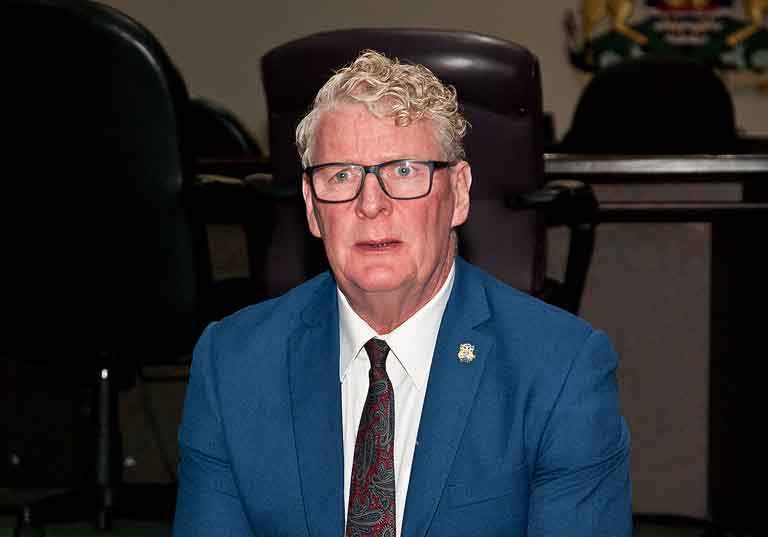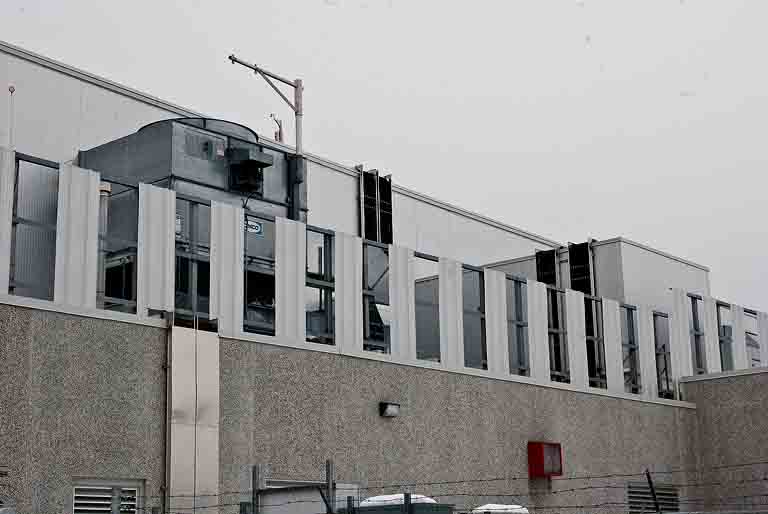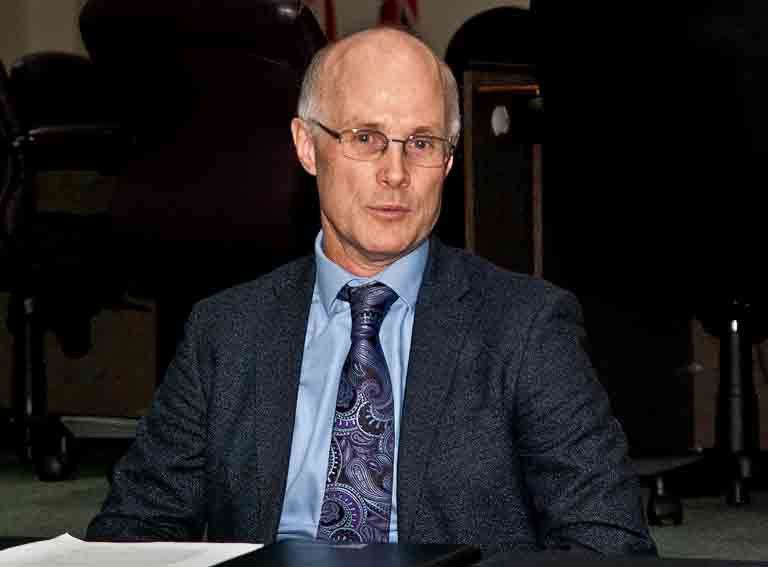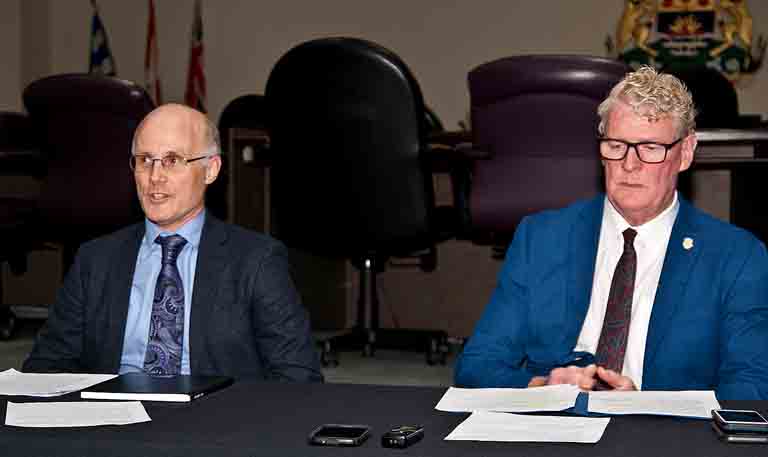Legionnaires’ Outbreak Declared Over
By John Swartz
The City of Orillia and the Simcoe Muskoka Distinct Health Unit (SMDHU) jointly held a press conference Tuesday in council chambers to give details of the Legionnaires’ disease outbreak.
“We are now declaring the cluster to be over and our investigation completed,” said Dr. Charles Gardner, medical officer of health for the SMDHU.
Ten people were stricken and one person died.
“I would like to start by expressing my sympathy for the 10 individuals who were made ill and in particular the one who passed away,” said Gardner.

Mayor Steve Clarke looked uncharacteristically strained and concerned through the duration of the press conference.
“We do feel badly for the people that became ill and the family and friends of the person who passed away, of course I would be upset.”
“The whole situation is extremely unfortunate and many of us are still trying to figure out how we even got to the situation where we had the positive tests,” Clarke told SUNonline/Orillia.
The concern is the juxtaposition of the City completing an annual inspection and testing of the cooling tower at Rotary Place and getting results showing no presence of the Legionella bacteria (which causes Legionnaires’ disease) coupled with bi-weekly disinfecting maintenance, and the outbreak which occurred virtually at the same time.

“The date of onset is one thing. The incubation period takes you back another, up to 14 days. The onset in some case was mid-September, late September. The date of exposure and contraction would have been up to two weeks before that,” said Gardner.
“Coincidently the annual testing was September 19th and of course later in and around that time this cluster became a reality. One thing we’ve learned in the whole process is the Legionella bacteria can go from an undetectable amount to an amount that puts people at risk in a matter of as little as 48 hours,” said Clarke.
The health unit is convinced the cooling tower at Rotary Place is connected to the outbreak, but Dr. Gardner would not say definitively it was the reason for the fatality.
“I am certainly not the attending physician, I wouldn’t be able to comment on the role that Legionella may or may not have played in that person’s demise,” Gardner said. He would not identify who died.
“We do not divulge personal information on individuals who’ve been patients because of their privacy, because of right to privacy legislation to protect their privacy.”
“We’re not aware of any staff contracting, being involved,” Clarke also said.
The Investigation
Swabs were taken from two patients and analyzed by Public Health Ontario. The other 8 cases were not able to be tested.

“We were only able to get cultures on the sputum of two of the patients, in part because of the timing of the use of antibiotics. Once the patient begins on antibiotics you are not going to get a positive culture. We were fortunate in getting those two and having them a close match,” to each other Gardner said.
With that information the health unit could start to look for the source.
“(We) began our investigation in downtown Orillia and worked our way out looking for cooling towers. In all things the City of Orillia was very helpful to us to help identify such locations and facilitate access,” said Gardner.
“We contacted a total of 39 premises and out of that identified a subset that had cooling towers, and tested all but two of them,” Gardner said. The two not tested were at seasonal premises and cooling towers had already been shut down and drained. “We pretty well covered the City.”
Public Health Ontario again did the testing and were able to match the Legionella strain from the patients to a sample from the Rotary Place.
“There is a match genetically with that tower and two of the patients,” said Gardner. He also said their investigation, tracking movements of patients, showed none had actually been to Rotary Place.
“Legionella can actually be transmitted by aerosol mist from cooling towers a great distance, 6 kilometers, in some outbreaks farther. The majority of individuals in this cluster were not actually within the immediate vicinity of the Rotary Place.”
Of all the cooling towers tested, two others were found to have issues.
“We found a couple of sites in which we recommended disinfection, but they did not have a match to this particular Legionella strain,” said Gardner. It is not known if those were City owned towers. In previous conversations regarding this outbreak Brian Orser Arena and Barnfield Point were not found to have had the bacteria.
What Next?
The big question – is the City going to face a lawsuit?
“Those types of things do happen, but we wouldn’t be surprised if it did happen,” said Clarke. “I’m not aware of any specific cases.”
Legionnaires’ disease has not been in the news for a long time, but that doesn’t mean there haven’t been cases in Simcoe County.
“Each year we do have sporadic cases, not part of a cluster, as many as 5 in a year,” said Gardner.
There was a major outbreak at a long-term care home in the Toronto in 2005 which affected residents, staff and visitors. Oddly, the City’s maintenance policy exceeds the provinces by virtue of the province having no specific regulation for Legionella bacteria detection.

“This is one of the things that was surprising to us at the City, that there were no provincial regulations or a standard of care mandated by the province to follow,” said Clarke. The health unit doesn’t have procedure either.
“I certainly fully trust the City in their diligence in general. We’ve not actually looked at from that lens of what should have been done. We would look at it from a lens of what’s happening in this outbreak, how we bring it to a close. We normally don’t inspect these towers. It’s not a normal part of our work. We’ve had to take this on in response to these outbreak and learn a great deal about it,” said Gardner. A post-incident analysis is being carried out by the SMDHU.
“I would anticipate we’ll end up with some recommendations for the province to help avoid this kind of thing from happening,” said Gardner.
![]()



Owing to the short time period between a clean bill for the Rotary Place cooling tower and the outbreak, Gardner thought it would be difficult to control bacteria like Legionella all the time, especially considering the City’s maintenance plan, which Clarke said is more diligent than many other municipalities.
“Even then there is a potential for this to happen, even with the best of maintenance,” said Gardner.
Because no new cases have been reported since October 2, Gardner is confident the outbreak is over.
“We are satisfied this cluster is now over given the duration since the last case which began at the beginning of October and are thus closing our investigation,” Gardner said. “We believe everybody is safe to go about their regular work, recreation and travel. We do not anticipate any additional cases.”
(Photos by Swartz – SUNonline/Orillia; Image – National Research Council of Canada )




